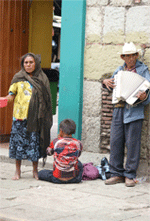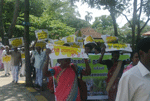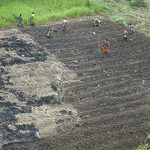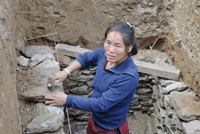Published on Tue, 2013-02-26 23:00
While many analysts believe the worse of the EU’s financial crisis is over, however as protests rock have rocked Bulgaria and forced the government to resign one might wonder if the worst road lies ahead. Bulgaria is generally considered the poorest member of the European Union and while the country demonstrated wiser financial sense that its Southern European counterparts its finances have been in poor shape since the 2009 financial crisis. |
Published on Thu, 2013-02-21 20:00
The 2010 Progress Government Report on the MDGs in Mexico emphasizes that most of the indicators associated with the MDGs and their goals have significantly improved, claiming to have met most of them and anticipating the rest would be met by 2015. Despite the progress, the report indicates that there is still a long way to go: income inequality and living conditions of poverty and vulnerability in many families still persist; it is necessary to reduce maternal mortality and consolidate gender equality; the vital challenge of environment and higher economic growth is still unsolved. |
Published on Thu, 2013-02-21 18:42
Experiences of farmer organizations and people’s organizations over the last 15 years show that ecological agriculture is a very effective way of overcoming hunger and poverty and of reducing ill health, and ecological destruction caused by conventional chemical farming. Over a hundred organizations of farmers, fishers, women, plantation workers and industrial workers have struggled in Sri Lanka for a more logical, workable and people friendly approach and strategy for economic improvement, reduction of poverty and hunger and for social justice. Today they are able to present a very workable alternative approach to the economy and development process in the country. |
Published on Thu, 2013-02-21 17:41
Tanzania is endowed with abundant natural resources but lacks mechanisms for utilizing them effectively for micro and macro development. Invitation to foreign and local companies to invest in key economic sectors is yet to yield expected results. For instance, incentives and tax evasions are so high. The government is therefore urged to diversify the economy and find more viable and alternative sources of revenues for economic development. |
Published on Thu, 2013-02-14 22:37
Evidence in Nepal suggests that the root causes of the political conflict include not only the severity of poverty and inequality but also the sense of entrenchment - that opportunities are limited or non-existent for the poor to climb out of poverty. Therefore, addressing constraints on the inclusiveness of development is critical in order to make a real difference in the lives of Nepalis and reduce the risks of instability. |
SUSCRIBE TO OUR NEWSLETTER







